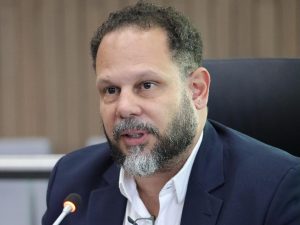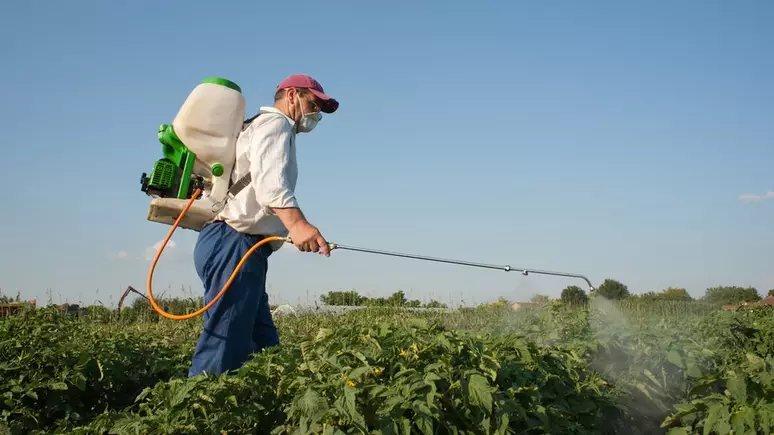“…the National Program for Traceability of Pesticides and Related Products (PNRA), has reignited the debate…”
Luis Eduardo Pacifici Rangel is a member of the Sustainable Agriculture Advisory Board – CCAS, former general coordinator of pesticides and related products, former director of plant health, and former secretary of agricultural defense.

Luis Rangel, member of CCAS
Ordinance No. 805/2025, which establishes the National Program for Traceability of Pesticides and Related Products (PNRA), has reignited the debate on governance, regulatory efficiency and the real impact of new regulations on agriculture. The text of the Ordinance, apparently published without the mandatory regulatory impact evaluation and without a formal public consultation, determined cascading obligations for all parts of the agricultural pesticides chain, under the justification of improving product control and traceability.
However, a closer look reveals that the PNRA does not create new mechanisms, nor does it extend real guarantees to farmers or end consumers. On the contrary, it reissues obligations already contemplated in Law No. 14785/2023, which modernized the regulation of pesticides in Brazil and provided for control and traceability mechanisms within the pesticide recommendation and registration processes. In other words, the ordinance repeats legal provisions, does not regulate the law in a complementary manner, and also creates bureaucracy with regulatory redundancies without adding effectiveness.
Worse than the regulatory overlap is the social and economic cost imposed without technical support. The text requires the implementation of RFID (radio frequency identification) technology in pesticide packages, ignoring other equally effective and less costly solutions, such as QR codes, blockchain and cloud systems. This standardization, imposed without clear technical justification and without proper cost-benefit analysis, not only violates the principle of administrative reasonableness, but may also favor certain suppliers, creating artificial barriers to competition, in flagrant violation of the Economic Freedom Act (Law No. 13874/2019).
Another serious problem concerns the process. The ordinance was published on the same day as the deadline agreed upon for submitting the report of a working group (WG) established by the Ministry of Agriculture itself, made up of government technicians and representatives of the production chain. The WG was not only ignored, but its report was contradicted. What should have been a democratic and technical construction process became an example of disrespect for good regulatory governance.
One of the main examples of the mismatch between Ordinance No. 805/2025 and the reality of the sector is the reverse logistics of empty pesticide packages. Brazil has the most advanced system in the world for returning and controlling such packages, coordinated by InPEV (National Institute for Processing Empty Packaging). Since its creation, this system has removed more than 700 thousand tonnes of packages from the environment, with return rates exceeding 94% in several regions.
The inPEV model already guarantees operational traceability: when returning packages, the farmer presents the invoice, registration, location and quantity applied, generating a robust and auditable database. More than a reverse logistics system, it is an already established system for controlling the product’s life cycle – exactly what the PNRA aims to replicate, but with less efficiency and with higher costs.
Furthermore, the measure is not in line with international regulatory best practices. The Argentine experience, via SENASA, was cited during the technical debates as a reference for an adaptive model, built through dialogue and calibrated to the technological and logistical reality of the actors involved. The PNRA, on the other hand, improvises solutions without impact metrics, without considering the heterogeneous profile of farmers and without proving any concrete effect in reducing smuggling, counterfeiting or toxicological risks.
It is important to remember that Brazil already has reasonably effective control instruments: electronic agronomic recommendations, systems for the monitoring of pesticide sales (such as data from IBAMA and MAPA), and control via electronic invoices already allow for the tracing of a significant part of the legal transactions of pesticides. The proposed traceability, as it stands, further bureaucratizes the system, increasing the regulatory costs without proportional returns.
Obviously, arbitrary actions carried out in this manner suggest reactions of the same intensity in the opposite direction. The Legislative Decree Project (PDL No. 312/2025), presented by Congressman Pedro Lupion, proposes suspending the effects of the ordinance and raises legitimate arguments: lack of Regulatory Impact Analysis, disrespect for the consultative process, disproportionate imposition of obligations and incompatibility with current legislation. These elements cannot be ignored, at the risk of institutionalizing a dysfunctional regulation that is disconnected from the reality of the farms.
Proper traceability of agricultural inputs is an important goal. However, it needs to be built on the basis of evidence, dialogue, economic viability and practical effectiveness. Regulatory improvisation, excessive bureaucracy and poor technical adherence only distance us from the necessary technical objectives. Defending good regulation does not mean being against control – it means being in favor of efficient, legitimate and proportionate solutions.
READ MORE:

